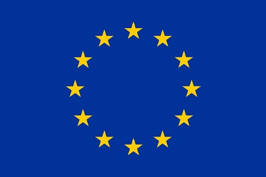By: Jovana Brkic & Daniela Fialova
As people get older they have more difficulties with recovering from minor injuries, are more likely to develop more medical conditions and consequently use more medications. We do not have enough information about how appropriate certain medications are for older people and therefore medication treatment plans in older adults are not yet adequately individualized.
Older people are generally underrepresented in clinical trials, clinical guidelines are more focused on single diseases and are mostly based on results of trials on the healthier younger population.
Older persons are also usually not involved in decision making about their medical treatment and interventions are many times focused on “cure” than on older patients’ quality of life and preferences. For many older patients improvement of quality of life, such as being able to pursue usual activities and being free of pain is the highest priority.
Many healthcare workers are not adequately educated in the field of geriatrics and geriatric pharmacotherapy, although older persons are the most frequently represented patient group in different health care settings and the most common users of medicines.
Polypharmacy, i.e. the concurrent use of multiple medications and inappropriate prescribing, is more prevalent in the older population than other age groups, even if a lot of tools now support better-prescribing practices in older patients. Polypharmacy puts older patients at risk of negative health outcomes, unnecessary hospitalisation but also creates additional expenses for individuals and health care systems.
In order to minimise ageism in health care and improve older patients’ treatment, several strategies should be implemented, particularly:
(1) the number of older persons in clinical trials should increase to have more evidence about the real efficacy and safety of medications in the older age group;
(2) existing clinical guidelines should incorporate more information on older adults;
(3) healthcare professionals should be more educated in geriatric pharmacotherapy and individualized, person-centred approach; and
(4) the emphasis must be given on shared decision making and empowerment of older persons to influence the appropriate choice of their medications.
For more information:
Book Chapter Ageism and Medication Use in Older patients:https://link.springer.com/chapter/10.1007/978-3-319-73820-8_14
EUROAGEISM H2020 project, FIP7 program webpage:https://portal.faf.cuni.cz/Projects/Euroageism-Project/
—
Jovana Brkic, MSc
Main ESR in FIP7 program of th EUROAGEISM H2020 project
Department of Clinical and Social Pharmacy, Faculty of Pharmacy, Charles University, Czech Republic
Daniela Fialova, PhD, PharmD, BCCP
Chair of the EUROAGEISM H2020 project-FIP7 program
Head of the University Educational Centre in Clinical Pharmacy, Faculty of Pharmacy, Charles University, Czech Republic
Department of Clinical and Social Pharmacy, Faculty of Pharmacy, Charles University, Czech Republic
Department of Geriatrics and Gerontology, First Faculty of Medicine, Charles University, Czech Republic

